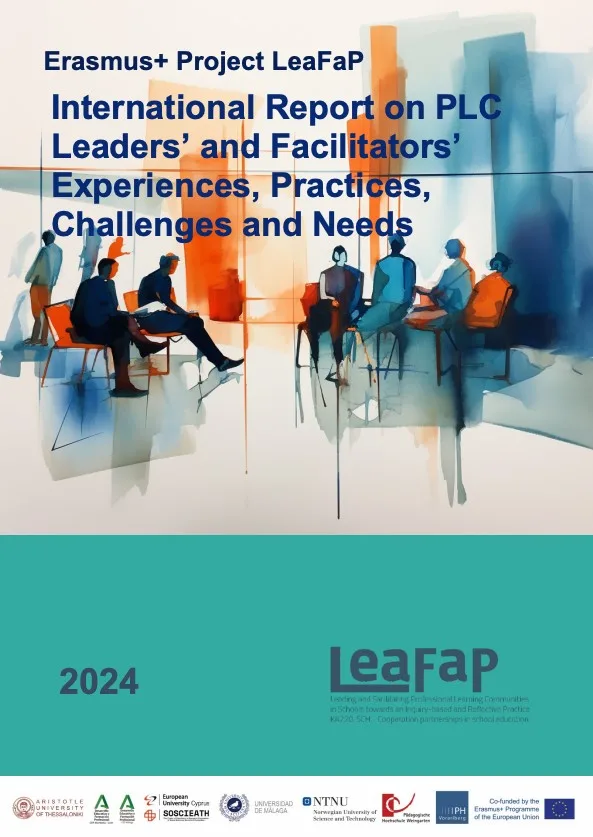
The aim of the following reports is to provide a comprehensive overview of empirical experiences and conceptual insights related to leading and facilitating Professional Learning Communities (PLCs). Our analysis explores challenges and needs in PLC moderation, leadership, and facilitation that encourage reflective dialogue and learning among members, leading to school innovation. Based on focus group interviews with educational staff and student teachers from Austria, Cyprus, Germany, Greece, Norway, and Spain, the insights are compiled in our International Report. You can access this report, along with the corresponding national reports, below.
Download available: The full reports related to the focus group interviews are available for download further down on this page.
International Report – English
Barrios, E., Torres-Sánchez, M., Sanchidrián, C., Kansteiner, K., Louca, L., Avgitidou, S., del Arco, R., Gallego, M. M., Emstad, A. B., Frick, E., Iliopoulou, K., Knutsen, B., Lang, P., Rümmele, K., Stylianidou, E., & Theurl, P. (2024). International report on PLC leaders’ and facilitators’ experiences, practices, challenges and needs. LeaFaP Project. https://www.leafap.eu/
This international report presents findings from focus groups and interviews with 99 school leaders, facilitators, and student teachers from Austria, Cyprus, Germany, Greece, Norway, and Spain. It explores roles, practices, competencies, and challenges in leading and facilitating Professional Learning Communities (PLCs). Key themes include relational, collaborative, reflective, and organizational dimensions of effective PLC work. The report identifies support needs for in-person and online PLCs and stresses the importance of tailored training programs. It contributes practical insights for designing professional development aimed at sustainable, inquiry-driven PLC leadership and facilitation.

Spain – English & Spanish
Barrios, E., Torres-Sánchez, M., Sanchidrián, C., Gallego-García, M. M., & del Arco, R. (2024). Focus group report on PLC leaders’ and facilitators’ practices and needs – Spain. LeaFaP Project. https://www.leafap.eu/
Barrios, E., Torres-Sánchez, M., Sanchidrián, C., Gallego-García, M. M., & del Arco, R. (2024). Informe de España sobre prácticas y necesidades de líderes y facilitadores de CPA – Estudio con grupos focales. Proyecto LeaFaP. https://www.leafap.eu/
This report presents findings from Spanish focus groups with student teachers, school leaders, and external facilitators involved in Professional Learning Communities (PLCs). Student teachers valued emotional safety, structured meetings, and reflection, though time constraints were challenging. School leaders emphasized shared leadership, communication, and strategic vision. Facilitators highlighted accompaniment, reflective practice, and strong relationships, while noting time limitations and varying teacher motivation. Across all groups, the need for training in leadership, facilitation, and collaboration—especially for online settings—was a recurring theme.
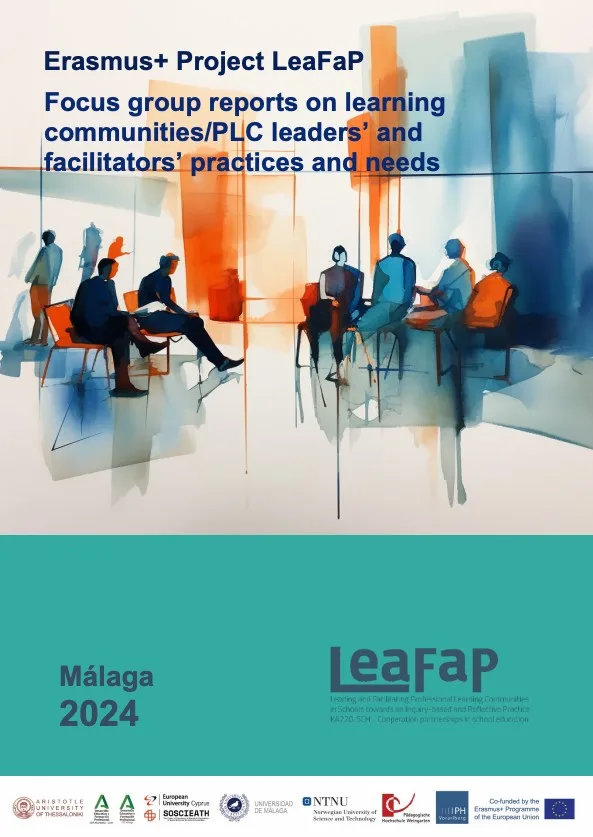
Greece – English & Greek
Avgitidou, S., & Iliopoulou, K. (2024). Focus group report on PLC leaders’ and facilitators’ practices and needs – Greece. LeaFaP Project. https://www.leafap.eu/
Αυγητίδου, Σ., & Ηλιοπούλου, Κ. (2024). Έκθεση ομάδων εστίασης για τις πρακτικές και τις ανάγκες ηγετών και διευκολυντών ΕΚΜ – Ελλάδα. Έργο LeaFaP. https://www.leafap.eu/
This report presents findings from interviews and a focus group with Greek PLC facilitators and one school leader. It explores the practices, competencies, and challenges of supporting Professional Learning Communities (PLCs). Facilitators emphasized trust-building, reflective dialogue, action research, and context-sensitive strategies. The school leader highlighted inclusive leadership, shared pedagogical principles, and the importance of communication and collaboration. Challenges included systemic rigidity, limited collaboration culture, and dual evaluator roles. The report underscores the need for training in inquiry-based facilitation and online collaboration tools.
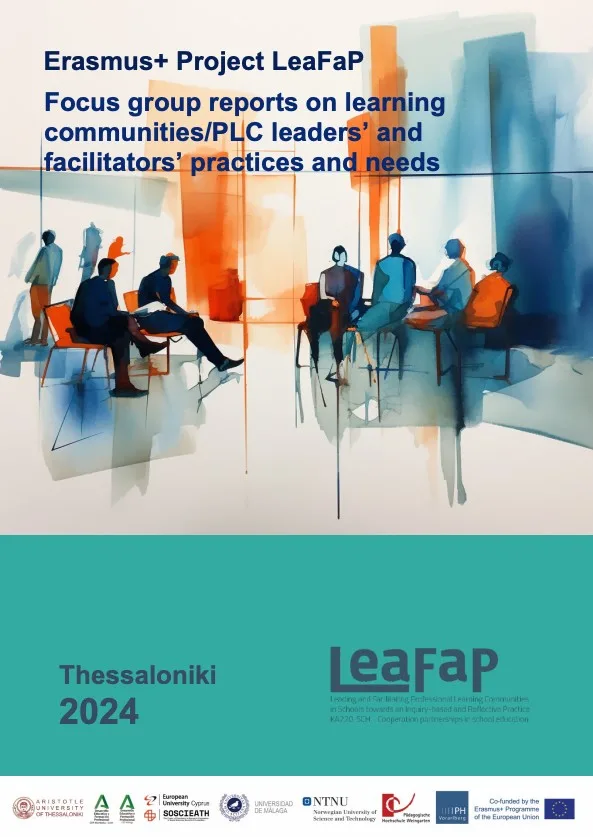
Norway – English & Norwegian
Emstad, A. B., Knutsen, B., Rødset, A., Unstad, K. H., Haaland, M., & Hansen, R. G. (2024). Focus group report on PLC leaders’ and facilitators’ practices and needs – Norway. LeaFaP Project. https://www.leafap.eu/
Emstad, A. B., Knutsen, B., Rødset, A., Unstad, K. H., Haaland, M., & Hansen, R. G. (2024). Fokusgruppeintervjuerapport om PLF-ledere og fasilitatorers praksiser og behov – Norge. LeaFaP-prosjektet. https://www.leafap.eu/
This report summarizes four Norwegian focus group interviews with PLC leaders and facilitators. Participants include experienced academics, school leaders, and newly appointed principals. Key themes include reflective practice, inquiry-based leadership, the importance of trust, and differentiated facilitation strategies. Challenges include role complexity, time constraints, and group dynamics. Training needs vary, but all value professional support networks, clear models, and tools. Online PLC facilitation is seen as both flexible and demanding. Effective PLC leadership requires curiosity, communication skills, and the ability to balance structure with relational sensitivity.
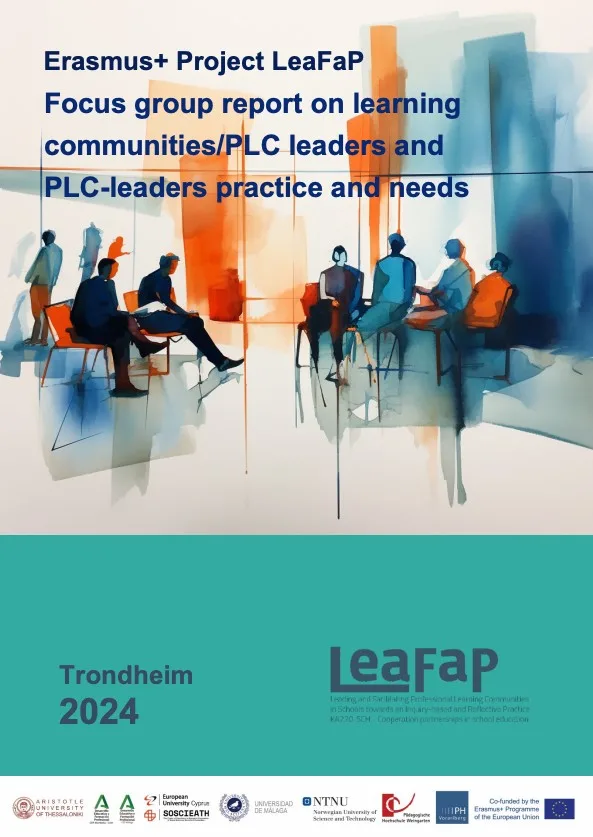
Austria – English & German
Theurl, P., Rümmele, K., & Frick, E. (2024). Focus group report on PLC leaders’ and facilitators’ practices and needs – Austria. LeaFaP Project. https://www.leafap.eu/
Theurl, P., Rümmele, K., & Frick, E. (2024). Bericht zu Praktiken und Bedarfen von PLG-Leitungen und Moderator:innen – Fokusgruppenstudie Österreich. LeaFaP-Projekt. https://www.leafap.eu/
This report summarizes Austrian focus group findings from PLC leaders, student teachers, and faculty members. Key themes include the dual role of lecturers as leaders and facilitators, the importance of trust and democratic values, and the role of structured reflection. Student teachers valued guidance but also expressed interest in shared leadership, especially in later semesters. Challenges included the evaluator–facilitator role conflict, time constraints, and fostering open dialogue. Online PLCs offered flexibility but required digital skills and trust-building. Participants called for targeted training in facilitation, communication, and democratic leadership.
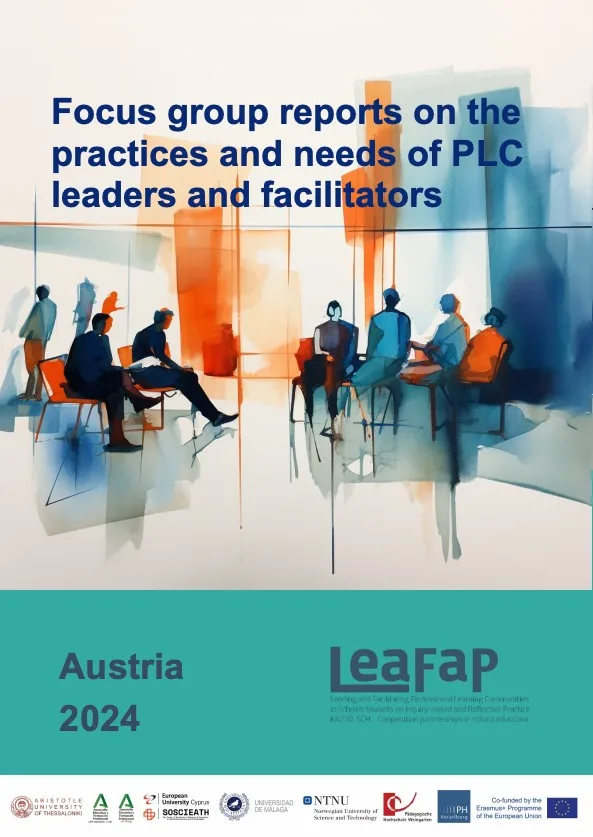
Germany – English & German
Kansteiner, K., & Lang, P. (2024). Focus group report on PLC leaders’ and facilitators’ practices and needs – Germany. LeaFaP Project. https://www.leafap.eu/
Kansteiner, K., & Lang, P. (2024). Bericht zu Praktiken und Bedarfen von PLG-Leitungen und externen Begleitungen – Fokusgruppenstudie Deutschland. LeaFaP-Projekt. https://www.leafap.eu/
This report presents focus group findings from Germany, based on interviews with student teachers and external facilitators of PLCs. Students highlighted the importance of structure, trust, democratic processes, and support through reflection and impulses. Challenges include role conflicts, time constraints, and limited clarity around the PLC concept. External facilitators emphasized organization, role distribution, reflective dialogue, and the inquiry-based approach. Both groups stressed the need for targeted training in facilitation, especially regarding online PLCs, communication, and the development of trust-based collaboration.
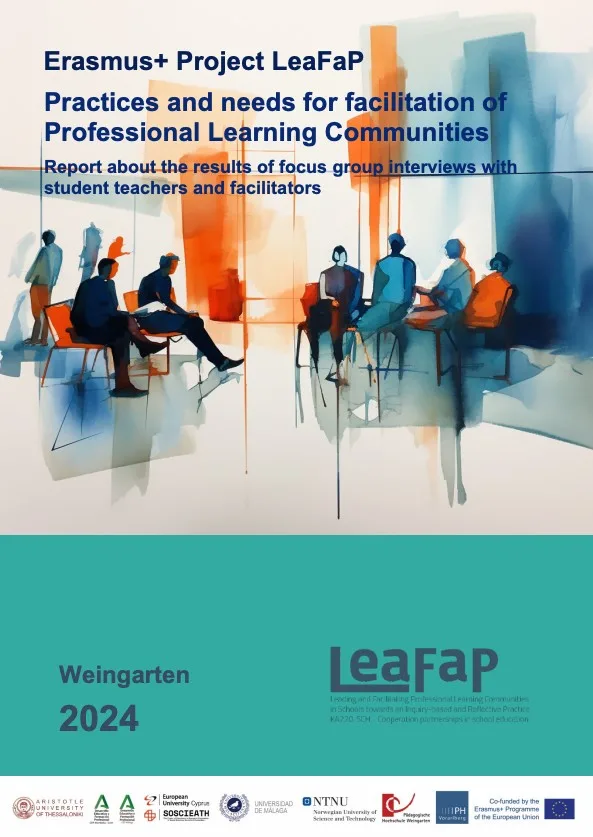
Cyprus – English
Louca, L., & Stylianidou, E. (2024). Focus group report on PLC leaders’ and facilitators’ practices and needs – Cyprus. LeaFaP Project. https://www.leafap.eu/
This report presents findings from structured interviews with three experienced external facilitators of PLCs working in public education in Cyprus. The facilitators describe their roles in promoting reflection, collaboration, and collective goal setting in PLCs across all school levels. Key themes include the need for differentiated support, the role of the facilitator as a “critical friend,” and strong communication and trust. Challenges include time constraints, lack of incentives, resistance to change, and the difficulty of promoting reflection. The report highlights the importance of continuous professional development, peer support, and adaptability—especially in online settings.
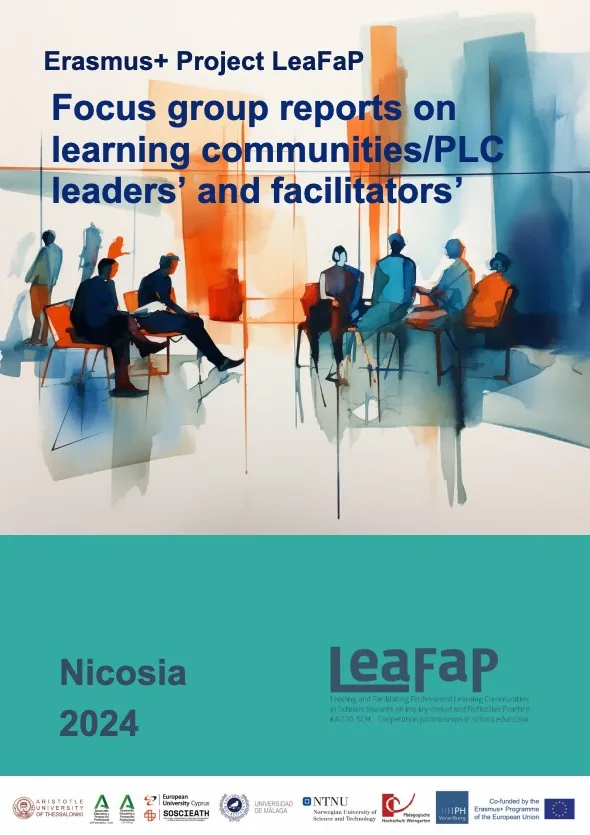
Leave a Reply
You must be logged in to post a comment.